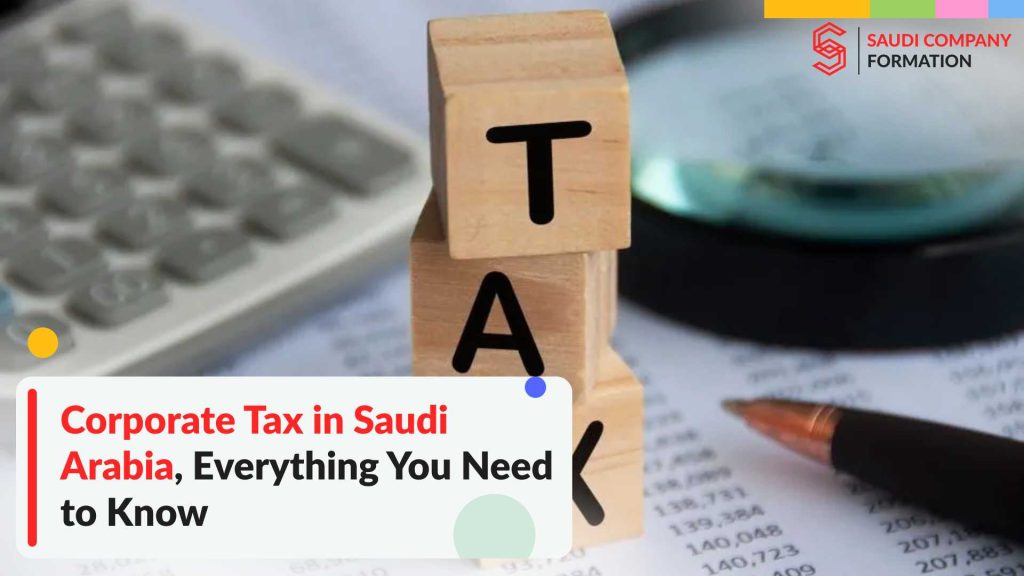In Saudi Arabia, there is no income tax. But corporates have to pay taxes. The corporate tax is charged on corporate profits. There is taxable income on which businesses have to pay taxation in Saudi Arabia. These taxable income encompasses revenue subtracted from the cost of goods sold. This also includes general, administrative, marketing and selling expenses. Operating, research and development costs also count in the taxable income.
There is taxation in Saudi Arabia only for foreign investors. This includes foreigners who are not citizens of Saudi or GCC countries. The citizens do not have to pay the corporate tax but they have to pay Zakat.
When a company is partially owned by Saudi citizen and foreign investors, the tax has to be paid on the foreigner’s taxable income portion. Taxation in Saudi Arabia will be the twenty percent of the income.
There is a number of taxes in Saudi Arabia for expats:
Business taxes are one of the taxes in Saudi Arabia for expats. It includes corporate income tax and self-employed income tax. The standard rate for this taxation in Saudi Arabia is twenty percent on a business profile. All Business Setups in Saudi Arabia also have to pay VAT at a fifteen percent standard rate.
The tax system in Saudi Arabia has withholding taxes. They are payable on the expat’s income. The rate for it starts at two percent. The highest is twenty percent.
Real estate transaction taxation in Saudi Arabia is to be paid on property transactions. Their rate is five percent.
The annual rate of white land taxation in Saudi Arabia is two and a half percent. They are paid by the owners of vacant land that has been specified for commercial and residential use.
Brief Overview of Taxation in Saudi Arabia
Taxation in Saudi Arabia applies to the following:
- Company with shares owned by foreign investors will pay Saudi Arabia company tax of twenty percent.
- Resident non-Saudi participating in corporate activities in Saudi Arabia.
- Expats carrying out activities in Saudi Arabia with a permanent establishment will pay the corporate income tax of twenty percent.
- Expats with other income sources will face taxation in Saudi Arabia at the rates of five, ten fifteen or twenty percent.
- The Saudi Arabia company tax for natural gas investment field is thirty percent.
- Oil and hydrocarbon industry is subject to fifty to eighty five percent rate depending on their investment size.
The tax system in Saudi Arabia has varying rates for companies concerned with production of oil and hydrocarbon. The division is as follows:
- Fifty percent of investments that exceed SAR 375 billion
- Sixty five percent for investment that are between SAR 300 billion to SAR 375
- Seventy five percent tax rate is for investments between SAR 220 billion to SAR 300 billion
- Eighty five percent rate applies to investments that reach SAR 225 billion
Social security contributions have to made by all the residents. Taxes in Saudi Arabia for expats running their own business. Everyone in Saudi Arabia has to pay VAT and duties on goods and services.
How Does Tax Work for Foreigner Business?
There have been taxes in Saudi Arabia for expats and their dependents since 2017. Taxation in Saudi Arabia increases each year. It had reached SAR 400 per dependent each month. Saudi Arabia company tax for foreign employees is SAR 800 a month. There is a discount in fee if the number of Saudi employees increases than the number of foreign workers working in a company.
Foreigners earning money or doing business in Saudi Arabia will be charged a withholding tax. This usually depends on the service and business type. The rates for it are:
- 5%
- 15%
- 20%
There are events when expats are faced with taxes in their home country too. ZATCA entered tax agreements with fifty six countries to avoid double taxations.
Taxes in Saudi Arabia for expats self-employed in the country are twenty percent on the profits. Taxation in Saudi Arabia requires its citizens to pay Zakat. It is not compulsory for the expats.
What’s New About Taxation in 2024
KSA introduced the tax amnesty initiative back in March 2020. It had been titled Cancellation of Fines and Exemption of Financial Penalties. The program has been running since then. It will remain to be in effect till 30 June 2024.
Recent Developments and Changes
Saudi Arabia started a 30 year tax relief initiative. It is for multinational companies that operate in the regional headquarters within the country.
Recent amendments to tax laws
Because of the relief initiative, eligible companies will be subject to zero corporate income and withholding taxation in Saudi Arabia for approved operations.
Implications for businesses
Taxation in Saudi Arabia requires business owners to pay income tax. The amount of tax rate depends on owners’ nationality. Usually the Saudi Arabia company tax is twenty percent on the net profits. It is different for hydrocarbon and oil production businesses. This ranges between 5 to 85 percent.
Saudi investors are required TP pay Zakat as specified by tax system in Saudi Arabia. The company is charged 2.5 percent of the net worth of the company.
Penalties for Tax Avoidance
Not submitting the tax information or providing false information to the KSA authorities will result in severe financial penalties. The list of these penalties has been shared on the ZATCA website.
Providing false documents to avoid paying the VAT amount will get a fine of 3x the amount of VAT. Not filing a tax return will lead to five to twenty five percent of the tax you are owed. Neglecting to keep the accounting documents, tax invoices, books and records translate to a fine of SAR 50,000.
Not applying for a VAT registration leads to SAR 10,000 in fines. Not paying due tax will have five percent of the unpaid tax value added to each month.
Conclusion
Taxation in Saudi Arabia applies to the expats working in the country. Knowing what kinds of taxes are charged to whom and how much they have to pay saves the foreign investors from being non-compliant and facing heavy penalties. We pen this type of insightful blog, so keep updated, and learn more about businesses in Saudi Arabia, taxation, and much more.


